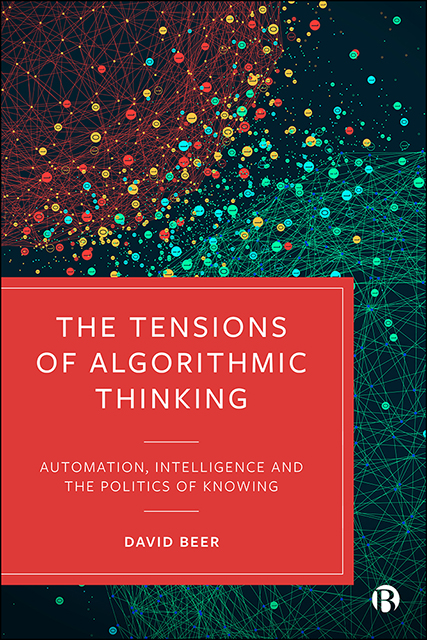Book contents
- Frontmatter
- Dedication
- Contents
- Acknowledgements
- 1 Introduction: Tense Thinking and the Myths of an Algorithmic New Life
- 2 The Pursuit of Posthuman Security
- 3 Overstepping and the Navigation of the Perceived Limits of Algorithmic Thinking
- 4 (Dreaming of) Super Cognizers and the Stretching of the Known
- 5 The Presences of Nonknowledge
- 6 Conclusion: Algorithmic Thinking and the Will to Automate
- References
- Index
4 - (Dreaming of) Super Cognizers and the Stretching of the Known
Published online by Cambridge University Press: 21 June 2023
- Frontmatter
- Dedication
- Contents
- Acknowledgements
- 1 Introduction: Tense Thinking and the Myths of an Algorithmic New Life
- 2 The Pursuit of Posthuman Security
- 3 Overstepping and the Navigation of the Perceived Limits of Algorithmic Thinking
- 4 (Dreaming of) Super Cognizers and the Stretching of the Known
- 5 The Presences of Nonknowledge
- 6 Conclusion: Algorithmic Thinking and the Will to Automate
- References
- Index
Summary
Impressions of an algorithmic new life inevitably have their boundaries. In a recent analysis of ‘eight public engagement experiments’, Annette Markham (2021) explored in some detail the limits that solidify within framings of algorithmic futures. Markham found that there were strong and persistent frames in place that secured certain visions of future devices, data and algorithmic social formations. Yet these visions are not simply accepted without question. The discussions at these events, Markham found, revealed that, when prompted, a critical understanding of the platforms and technologies could be readily articulated by the participants. Despite the critical ruminations of these participants, Markham also found that the framing of particular future scenarios persisted and carried with them a strong sense of inevitability. The future was somehow fixed. There was something obdurate about these framings; something that made them seem unavoidable. Indeed, Markham’s (2021: 384) argument is that such ‘discursive patterns continually strengthen the dominant frames of inevitability and powerlessness’. This would suggest that algorithmic thinking, as we discussed in Chapter 1, has a strong sense of the future inscribed within it. More than this though, it is also suggestive of how robust and irresistible those framings have become.
Continuing with some of the themes covered so far, this chapter explores the way that algorithmic thinking comes to have limits or boundaries that constrain social forms. Or, more specifically, it reflects on how the limits of the known and the knowable are an active part of the tensions of algorithmic thinking. To be clear from the outset, this chapter is not trying to position or establish those limits, nor is it claiming that they are fixed and secure, rather it explores the types of tensions that arise at such boundaries and how those tensions might be understood. As Markham identified, however sturdy these limits might appear there remains scope for them to shift if provoked to do so, with the possibility to imagine alternatives outside those existing frames, especially if the means are found to support and encourage different ways of thinking about the possibilities. As I will focus upon in this chapter, these sites of movement and tension are associated with what is known and what is thought to be knowable.
- Type
- Chapter
- Information
- The Tensions of Algorithmic ThinkingAutomation, Intelligence and the Politics of Knowing, pp. 63 - 95Publisher: Bristol University PressPrint publication year: 2022



